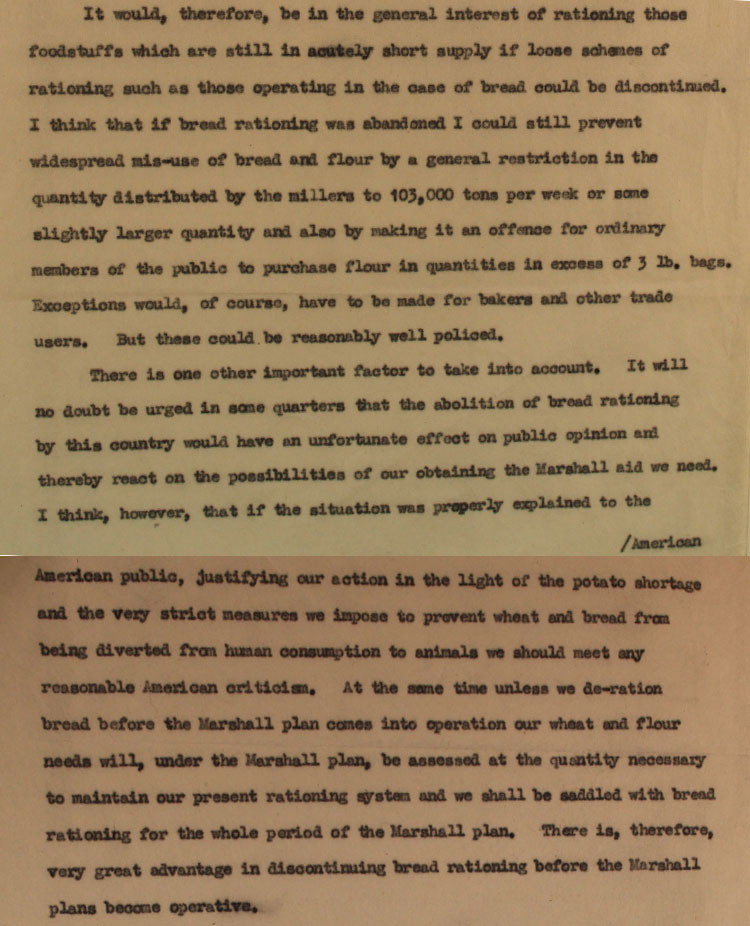
Extract from draft letter to Chancellor of the Exchequer, Stafford Cripps from Sir Herbert Broadley on behalf of the Minister of Food, January 1948 (MAF 84/197)
…
It would, therefore, be in the general interest of rationing those foodstuffs which are still in acutely short supply if loose schemes of rationing such as those operating in the case of bread could be discontinued. I think that if bread rationing was abandoned I could still prevent widespread mis-use of bread and flour by general restriction in the quantity distributed by the millers to 103,000 tons per week or some slightly larger quantity and also by making it an offence for ordinary members of the public to purchase flour in quantities in excess of 3 lb bags. Exceptions would, of course, have to be made for bakers and other trade users. But these could be reasonably will policed.
There is one other important factor to take into account. It will be no doubt be urged in some quarters that the abolition of bread rationing by this country would have an unfortunate effect on public opinion and thereby react on the possibilities of our obtaining the Marshal aid we need. I think, however, that if the situation was properly explained to the American public, justifying our action in the light of the potato shortage and the very strict measures we impose to prevent wheat and bread from being diverted from human consumption to animals we should meet any reasonable American criticism. At the same time unless we de-ration bread before the Marshall plan comes into operation or wheat and flour needs will, under the Marshall plan, be assessed at the quantity necessary to maintain our present rationing system and we shall be saddled with bread rationing for the whole period of the Marshall plan. There is, therefore, very great advantage in discontinuing bread rationing before the Marshall plans become operative.
…
